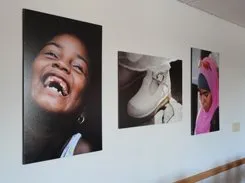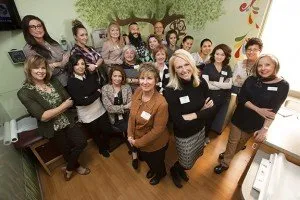
It could appear to an outsider that I am more well-read than is true. In any given day it may seem like I am reading several newspapers, trendy magazines and important periodicals. This is because I come from a family that clips articles and sends them to me. Often there are amazing gems full of insight and information that I would have missed if not for them.
Recently I received an article, “A Moral Bucket List” by New York Times journalist and PBS commentator David Brooks (2015, April 12 “A Moral Bucket List”). Even when our politics sit on different sides of the fence, his thoughtful manner resonates with me. In this article he talks about people and their different types of buckets lists. The most common bucket lists include things like climbing a mountain, learning to cook French food, or meeting your favorite movie star. The other type ̶ the “virtuous moral” bucket list ̶ is used by people he describes who “radiate an inner light” with “incandescent souls”. Their bucket lists are made up of noble accomplishments often shared at life’s end, and tend to be more significant than items found in one’s resume. We consider ourselves lucky when we meet these extraordinary individuals.
The article came when I needed it most. I felt like he was talking about a wonderful friend who recently passed away, much too soon ̶ Dr. Richard Steckel. Richard was someone who consciously or unconsciously lived by the virtuous moral bucket list code. David Brooks would have described him as someone who humbly considered “that life has treated him much better than he deserves”.
Many know Richard Steckel from his years as the executive director of the Children’s Museum, or for his books that promote corporate social responsibility and financial sustainability for nonprofit organizations. (My favorite is Filthy Rich: and Other Nonprofit Fantasies, Steckel, Richard (1989): Ten Speed Press). His work with the Milestones Project aimed “to impress upon people that no matter where we live, what we wear, or how we pray, we are all more alike than different.” He and his wife, Shelli, published many books full of photos that focus on these commonalities.
I am sure if Richard had written a moral bucket list (maybe he did) he would have included what he chose to do for his 70th birthday. He and Shelli spent the day taking professional photos of patients and families from Doctors Care, and made sure they all received beautiful prints to hang on their walls at home. Richard felt that everyone, regardless of their financial situation, had a right to professional photos acknowledging the milestones of their lives. It was great fun seeing the families arrive in their fanciest clothes. They were so grateful. Richard created many such memories that I am fortunate to have witnessed. Every hallway at Doctors Care is covered in poster-sized photos that Richard and Shelli Steckel took of children from around the world. They are a great reminder of a kind and generous man.
David Brooks describes people like Richard likely wondering, “What is life asking of me? How can I match my intrinsic talent with one of the world’s deepest needs?” We all have special skills and gifts that are meant to be shared in unique ways. Richard was one of the lucky ones who figured it out and made a difference. He will be greatly missed.
Bebe Kleinman, CEO
Doctors Care



